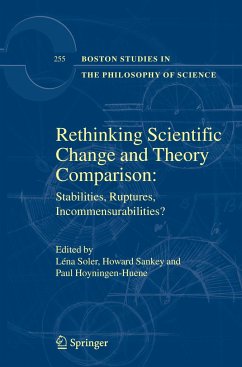LÉNA SOLER This volume is a collection of essays devoted to the analysis of scientific change and stability. It represents the most recent thinking on the topic of incommensurability and scientific theory change. It explores the balance and tension that exists between commensurability and continuity (or stabilities) on the one hand, and incommen- rability and discontinuity (or ruptures) on the other. And it discusses some central epistemological consequences regarding the nature of scientific progress, rationality and realism. With respect to these topics, it investigates a number of new avenues and revisits some familiar issues, with a focus on the history and philosophy of physics, in a way that is informed by developments in cognitive sciences as well as the claims of "New experimentalists". The essays in this book are fully revised versions of papers which were ori- nally presented at the international colloquium, "Repenser l'évaluation comparative des théories scientifiques:stabilités, ruptures, incommensurabilités?" organized by Léna Soler and Paul Hoyningen-Huene at the University of Nancy, France, in June 2004. Each paper is followed by a critical comment, which either represents an opposing viewpoint or suggests some developments. The conference was a striking example of the sort of genuine dialogue that can take place between philosophers of science, historians of science and scientists who come from different traditions and endorse opposing commitments. I hope that this is evident in the book too and that it will constitute one of its attractions.
Bitte wählen Sie Ihr Anliegen aus.
Rechnungen
Retourenschein anfordern
Bestellstatus
Storno









